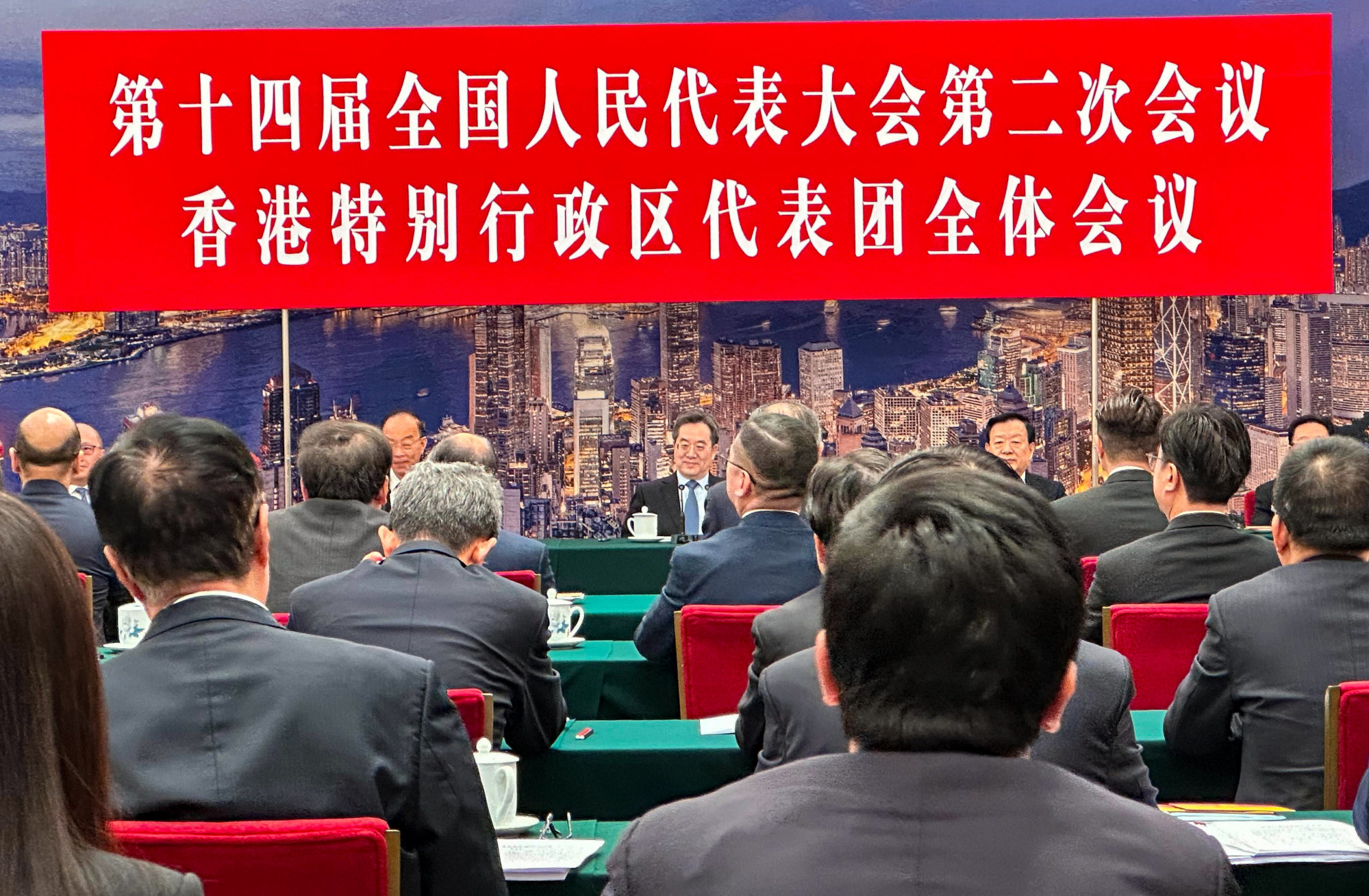
Hong Kong’s John Lee says ‘spare no effort’ as Article 23 national security bill goes to first reading in legislature on Friday
- Announcement follows special meeting on Thursday of the Executive Council, the government’s top decision-making body
- Chief Executive John Lee says he has written to the Legislative Council president, telling him enactment of law is a constitutional responsibility for the entire city
The announcement came after the Executive Council, the government’s top decision-making body, held a special meeting on Thursday afternoon to endorse the Safeguarding National Security Bill, which will be gazetted on Friday.
‘Hong Kong CPPCC members must be totally committed to supporting security law’
Chief Executive John Lee Ka-chiu said he had written to the Legislative Council president, telling him that the enactment of the security law was a constitutional responsibility for the entire city, and that Legco should start reviewing the bill as soon as possible.
In a prompt reply, Legco president Andrew Leung Kwan-yuen agreed to convene a special meeting at 11am on Friday for the first and second reading of the bill.
Lee said: “Both the government and Legco have the responsibility and must spare no effort in getting the law enacted as soon as possible.”
He added: “Completing the legislative work even one day earlier means we can more effectively safeguard national security one day earlier. [Hong Kong] can then focus its efforts on developing the economy, improving people’s livelihoods and maintaining the long-term prosperity and stability of Hong Kong.”
The government said there was a “genuine and urgent need” to legislate the proposed law, arguing that national security had been seriously threatened during the 2019 social unrest.
The full bill emerged just nine days after a one-month public consultation wrapped up.
The consultation was launched on January 30 and gave residents a first look at new types of security offences to be covered in the coming legislation.
Chinese vice-premier urges ‘necessary’ swift Article 23 enactment in Hong Kong
Legco generally holds full meetings on Wednesdays. Lawmakers once held a special meeting 14 years ago when a Hong Kong tour group was taken hostage in the Philippines.
The legislature usually takes a two-week break when Beijing hosts the two key annual meetings known as the “two sessions”, or Lianghui, as many local lawmakers attend the event.
A source told the Post that authorities were aiming to pass the bill as soon as early April to limit manoeuvring room for anyone seeking to “manipulate the process”.
While details of the bill were not yet available to the public as of Thursday evening, another source who read the document said it now included a public interest defence for offences related to the theft of state secrets.
The insider said he believed the bill had been drafted in a way that addressed most concerns raised during the consultation period, including some “clear” definitions of external forces.
The offence of treason also carried a life sentence, in line with the consultation paper, he added.

Business chambers and professional bodies earlier raised concerns about broadly worded clauses in the consultation paper, such as what might constitute state secrets and external forces.
Professor Lau Siu-kai, a consultant for semi-official Beijing think tank the Chinese Association of Hong Kong and Macau Studies, said a recent string of comments from foreign governments about the coming legislation might have prompted Beijing to condense the process even further.
“Recently, politicians and media in the United States and the West have suddenly stepped up their efforts to attack the Article 23 legislation, spreading rumours and panic. There seems to be an attempt at something,” he said.
“Finishing the task as early as possible will give external forces insufficient time to organise actions to obstruct the legislative work and create chaos in Hong Kong.”
Lau said he believed the accelerated procedure would have limited effect on the public’s perceptions as “most people expected the bill to be passed sooner or later”.
John Burns, an honorary professor in the department of politics and public administration at the University of Hong Kong, said he was surprised at the speed of the legislative process.
“Given the short consultation period, [the] legislative timetable means that the government is unlikely to make any significant change to the proposals. Yet citizens made many serious suggestions for amendment,” he said.
Members of the Executive Council issued a statement on Thursday night supporting the bill’s submission, calling it “comprehensive and meticulous”. They also praised the government’s careful analysis and study of public opinions.
Meanwhile, for two days in a row, Chinese Vice-Premier Ding Xuexiang, head of the Central Leading Group on Hong Kong and Macau Affairs, told city delegates attending the two sessions meetings in Beijing that enactment of Article 23 should top the agenda locally.
“Ding said only [with the legislation] can Hong Kong shift its primary focus to economic development, enhancing people’s livelihoods, and embarking on a road to prosperity,” said National People’s Congress deputy Chan Yung, who also is a local lawmaker.
The home-grown legislation mandated by Article 23 of the Basic Law, the city’s mini-constitution, seeks to outlaw five new types of offences: treason; insurrection, incitement to mutiny and disaffection, and acts with seditious intention; sabotage; foreign interference; and theft of state secrets and espionage.
Among recent comments from the West, British Foreign Secretary David Cameron had said the new law might pose threats to legitimate diplomatic activity, while the US State Department suggested the “broad and vague” definitions could be used to silence dissidents.
Additional reporting by Natalie Wong


